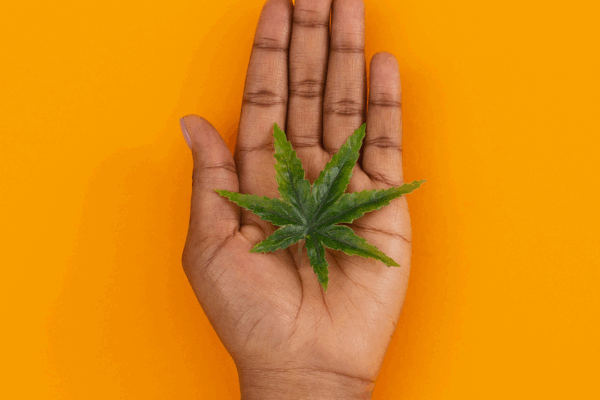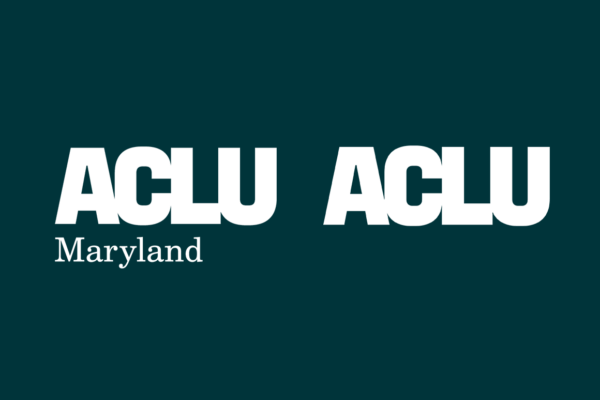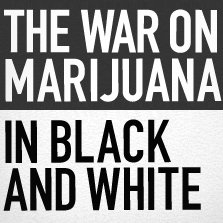ANNAPOLIS, MD – On the day of the Senate Finance Committee hearing for Senate Bill 692, the Cannabis Legalization and Reparations for the War on Drugs Act, the ACLU released new poll data showing that racial justice provisions to repair harm done from war on drugs strengthens support for marijuana legalization. SB 692, sponsored by Senator Jill P. Carter, holistically addresses the negative impacts of the war on marijuana, including stopping the practice by police of using the odor of marijuana as the only probable cause or justification to perform a warrantless search.
“States across the nation are grappling with how to pass cannabis legalization that truly advances racial justice, because many efforts so far have actually perpetuated racial disparities,” said Udi Ofer, director of the Justice Division at the ACLU National Political and Advocacy Department. “But Maryland has the opportunity to lead the nation and pass a groundbreaking piece of legislation that repairs the past harms of the war on drugs and invests in the communities most impacted by the criminalization of marijuana. Not only are the key justice-oriented provisions included in SB 692 vital for the advancement of equity, but they also actually increase Maryland residents' support for marijuana legalization. Now is the opportunity for the Maryland legislature to listen to their constituents’ demands and pass a model, comprehensive marijuana legalization bill that centers vital criminal justice reform provisions and reparations for Black and Brown communities most harmed by the war on drugs.”
In a new poll1 commissioned by the national ACLU, Maryland voters overwhelmingly support the legalization of adult-use cannabis, with 70% of registered voters supporting the change, and only 29% opposing. Support is high and crosses party lines, with 80% of Democrats supporting; a majority, 69%, of Independents; and nearly half, 48%, of Republicans supporting legalization.
Importantly, expanding legislation to include measures to protect citizens and address the impact of drug enforcement policies has the potential to strengthen support further:
- 66% are more likely to support legalization if it includes allowing previous marijuana-related convictions to be canceled and allowing other low-level marijuana possession convictions to be re-sentenced under current sentencing guidelines; 12% say this has no impact on their support. Over a third, 35%, of voters who do not currently support legalization say this provision would make them more likely to support it.
- 65% of voters are more likely to support legalization if it includes stopping the practice by police of using the odor of marijuana as the only probably cause or justification to perform a warrantless search; 13% say this has no impact on their support. Nearly a third of voters, 32%, who do not currently support legalization say this makes them more likely to do so.
- 61% of voters are more likely to support legalization if the package includes making sure the that the legal use of marijuana cannot be the basis to deny people housing, child custody, or negatively impact their parole or probation status; 13% say this provision makes no impact on their support. And 1 in 5 voters that currently do not support legalization, 20%, say that this element makes them more likely to support this legislation.
“Let’s get marijuana legalization done the right way,” said Yanet Amanuel, interim public policy director for the ACLU of Maryland. “Removing all criminal penalties from marijuana just makes sense, both because it has no public safety benefits and because it will finally ensure that Black and Brown Marylanders will not continue to be targeted by biased enforcement that is deeply harmful. It is clear that Marylanders want marijuana legalization to address the past and future wrongs of the devastating war on drugs.”
The poll shows that what bolsters Marylanders’ views is the belief that legalizing cannabis helps to repair the harm done by the War on Drugs, and that tax revenue can be used in the very communities most impacted by harmful, punitive drug policies. In a balanced, head-to-head argument, 65% of Maryland voters side with proponents of legalization who make a racial justice argument; only 32% agree with detractors. This suggests that not only do racial justice aspects motivate voters, but also that support for legalization is durable and can stand up to attacks.
Overall, the poll clearly shows that support for legalization is not only high, it is strengthened by elements currently being considered as the legislation is finalized and it is grounded in Marylanders’ sense of racial justice. Elements that recognize the full legality of cannabis – and remove past convictions and current usage as ways to harm Marylanders – appeal to voters and broaden support.
1 Methodology: Bully Pulpit Interactive surveyed 830 Maryland registered voters from February 10-21, 2022. Interviews we conducted via a mixed-mode methodology, with 200 interviews completed over the phone including cell phone and 630 online. The margin of error on a truly random sample of 830 interviews is +/- 3.4 percentage points and is higher among subgroups.
Related Content

A War on Marijuana, or a War on Black Communities?

27 MD-Based Groups to GA Leaders: We Are United for Racial Justice Centered Marijuana Legalization
Stay Informed
Sign up to be the first to hear about how to take action.
By completing this form, I agree to receive occasional emails per the terms of the ACLU’s privacy statement.
By completing this form, I agree to receive occasional emails per the terms of the ACLU’s privacy statement.



